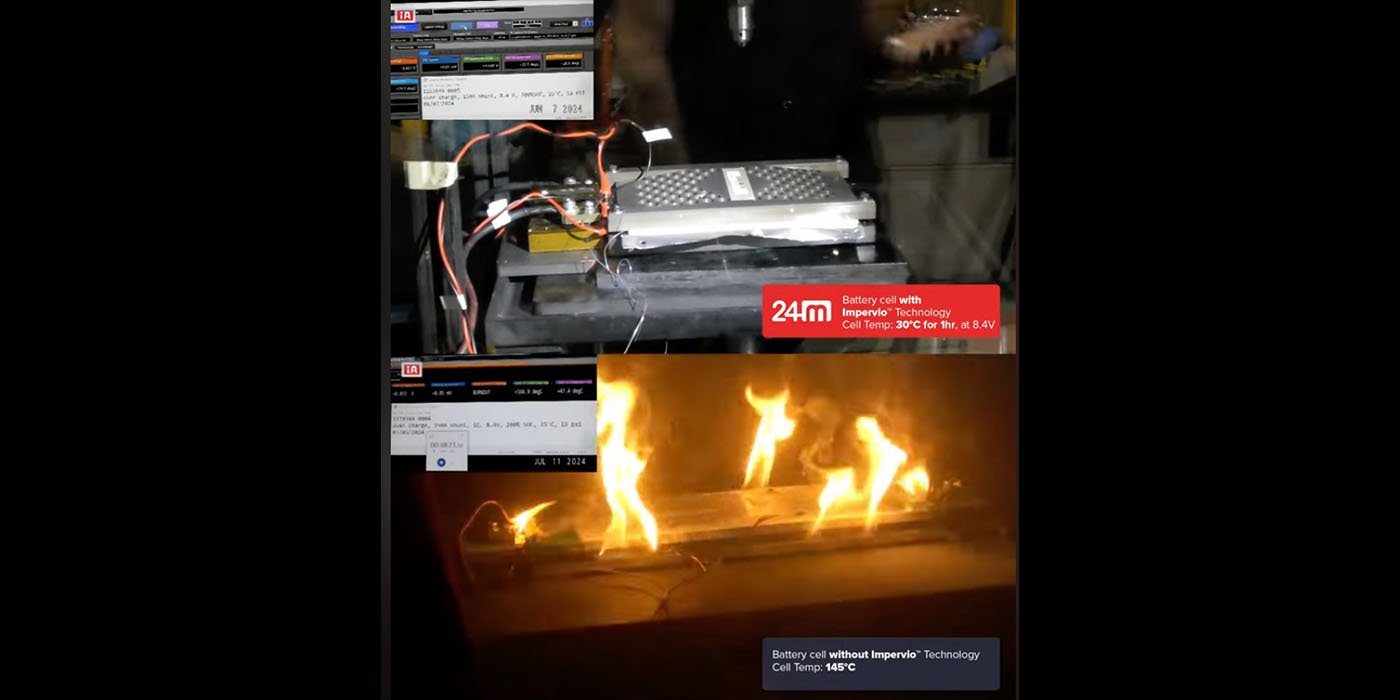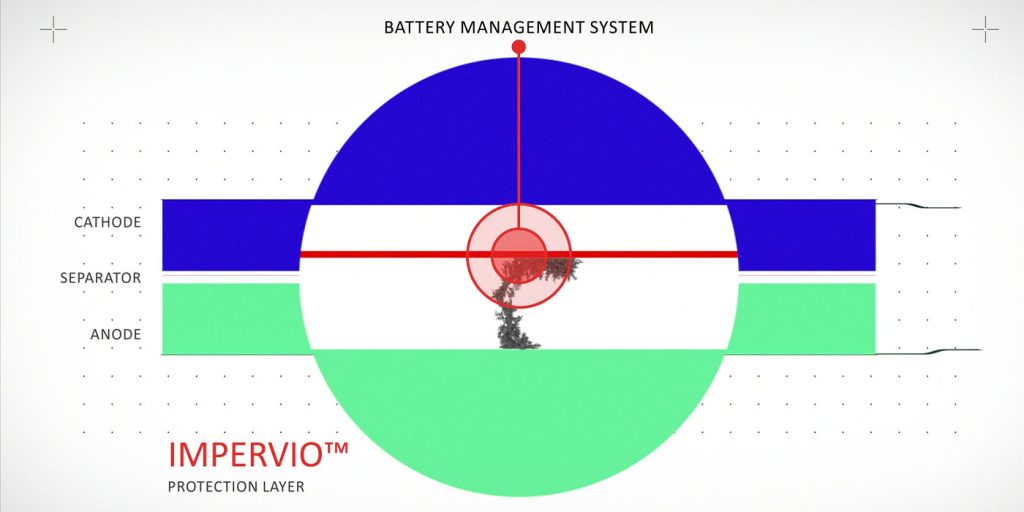
Volkswagen-backed battery developer 24M Technologies has shared test data showcasing its Impervio separator technology, which helps reduce the risk of EV battery fires. The video footage below shows a side-by-side comparison of conventional EV cells overcharged with and without an Impervio separator in real-time, demonstrating the technology’s potential in the future.
24M Technologies is a US-based battery startup spun out of MIT that has redesigned the traditional battery cell using “SemiSolid” lithium-ion technology. Prospective benefits of these unique cells include 40% less production area, more efficient product recycling, and less CO2 during battery production.
In December 2021, we shared the news that Volkswagen Group had invested in the battery specialist as part of three separate partnerships to advance EV battery cell development and adjacent technologies.
With VW’s financial support, 24M announced a novel approach to EV battery recycling called “Liforever” this past March. This approach is implemented directly into the battery manufacturing process as a method to recycle all active battery materials like lithium iron phosphate (LFP) more efficiently and cost-effectively while bypassing the creation of black mass entirely.
In January 2024, 24M introduced a new approach to battery separators called “Impervio,” which addresses the growing concern of fire across EV battery cells, energy storage systems (ESS), and consumer applications when they are overcharged. You can learn more about how 24M’s Impervio separator helps reduce the risk of EV battery fires in the company’s explainer video here.
Most recently, 24M shared test data that visually demonstrates the potential of its Impervio separator, overcharging EV battery cells with and without the technology in real time. The results are encouraging.

24M data that shows its separator reduces EV battery fires
As a follow up to its initial announcement earlier this year, 24M Technologies has shared actual test data that exhibits how effective its Impervio technology can be at preventing EV battery fires.
24M explained that overcharging a battery cell, like those utilized in EVs, can lead to dendrite formation and an internal short, which can result in a fire or, even worse, an explosion. The Impervio separator obstructs dendrite propagation by controlling the cell at the individual electrode level, thus preventing dendrites from propagating and faulting. 24M also shared that its technology can prevent thermal runaway by monitoring a cell’s electrochemistry and implementing a failsafe in the event of a shorting out.
The company shared the following video of a side-by-side performance test of two separate 10 Ah NMC/graphite cells, one with an Impervio separator and one with a conventional separator, charged to 100%, then overcharged to 100% overcapacity or twice the specified maximum voltage.
As you can see in the video, the non-Impervio, off-the-shelf cells overheated via dendrite-caused micro shorts after 15 minutes, causing the battery to inevitably explode and catch fire after 38 minutes. The NMC cell with 24M’s Impervio technology, however, did not overheat or catch fire after an entire hour of overcharging. 24M Technologies president and CEO elaborated on the potential of the company’s Impervio separators:
Battery safety is a major roadblock to the widespread adoption of EVs. Recent EV fires around the globe have highlighted why new battery safety innovations are required. A sustainable energy future is only possible with innovations like Impervio, which can help prevent battery fires and create new opportunities for battery innovation
It will be interesting and exciting to see 24M’s Impervio technology implemented at a mass scale, as EV battery fires, although rare, are still a major concern for OEMs and consumers alike. It would also be nice to remove the talking point about EV fire risk from the conversation from naysayers and political pundits as an argument against EV adoption.
FTC: We use income earning auto affiliate links. More.












